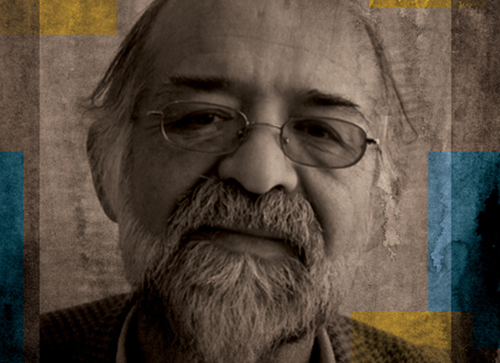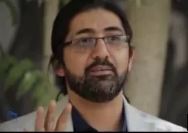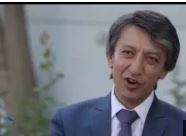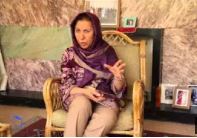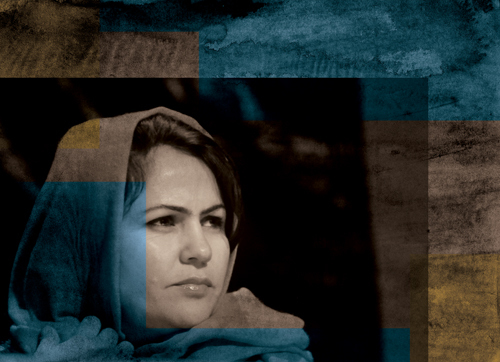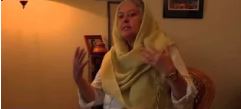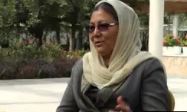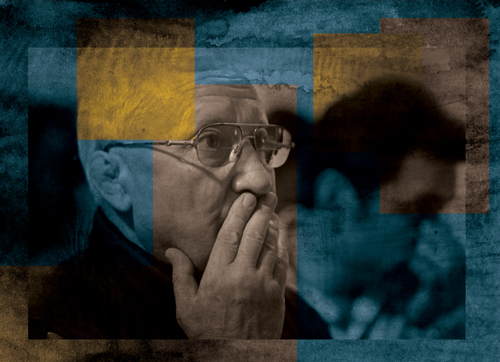“Unveiling Afghanistan Campaign“ was jointly launched by Armanshahr Foundation/OPEN ASIA & International Federation for Human Rights (FIDH) for 100 days in the run-up to the 2014 Presidential Election and provincial council elections in Afghanistan. Its goal was to provide a voice for and report the views of progressive intellectuals and public opinion formers.
In due course, 100 men and women working in universities, media, civil institutions and arts were interviewed. Different topics were discussed in the interviews: memories, activities, fears and concerns for the fate of the country, demands and wishes for the future, changes accomplished in the new era, challenges in different areas especially in regard to women’s rights and so on.
The interviewees dealt with the realities in Afghanistan from different angles. Each interviewee outlined and analysed the various issues and offered solutions and mechanisms which, at times, were quite different from the image ascribed to this country on the international level. Here is a summation.
Past experience
The prominent interviewees initially reported their memories of the violation of their own human rights during the previous eras and portrayed a picture to display what they had gone through; the rights lost under the Taleban were their common denominator. The difference lay in the intensity of their bitter experiences based on their occupation, gender, ethnicity, living environment and other variables. They pointed out the harm the Taleban inflicted on the culture of Afghanistan, including censorship, suppression, deprivation from education, sexual discrimination beginning at childhood and extending to marriage and employment, war and problems arising from migration, and finally insecurity both intellectually and mentally and victimisation of their relatives as a result of the war and violence practised by reactionary forces.
These progressive men and women were heartened by the innovations during the new era and some of the achievements. They recognised that the new generation is much more advanced and capable than the older generation. The ones with fewer tribal attachments endeavour to gain more knowledge, attach more value to individual freedoms and have a greater potential. Alongside this new generation, there are also women who are endeavouring for more extensive presence, in spite of all the shortcomings. They show up more extensively in schools and educational centres. Nowadays, there are more female activists in civil institutions and they challenge the patriarchal society through their presence. Some of the interviewees were of the belief that the power emanating from women’s presence will gradually push back the Talibanite ideology.
One other confidence building point referred to was ‘political consciousness’, which means endeavouring to build a democratic society even if we are at its beginning. Demands for peace, presenting various solutions as alternatives to war and violence, and participation in decision-making are on the rise. There are more numerous and freer media now in comparison with previous decades, both print and visual media as well as social networks, which the young people use more frequently. The civil institutions also provide a potential for hope that will contribute to the growth of the culture of democracy.
Deterrents to women’s participation
Most of the questions in the interviews concerned women and their human rights, and the mechanisms to improve their conditions. The interviewees pointed out different deterrents to women’s participation. The first aspect to come under criticism in regard to the progress in women’s demands was the domain of culture and traditions whose actors are trying to protect. The Talebanite interpretation of religion also falls under the category of culture. Many believe that it has left the biggest impact on women’s conditions. Owing to the teachings and lack of equal access to educational opportunities, women may lose the capacity to overcome the hurdles and even themselves become a hurdle preventing change. Lack of economic independence, dominated by poverty and financial dependence provide more ground for violence to emerge in its different forms.
On the other hand, the rule of law also faces criticism in Afghanistan. Laws concerning women’s rights are not adequate and are not properly implemented. Moreover, in the absence of an enduring, strong and solid movement, women are increasingly disempowered.
Demanding education for girls
The problem of schools closures and the people’s position were discussed in detail in other questions. Many respondents argued that the will of the reactionary forces to close schools was not implementable. Having offered evidence of the active endeavours of the new generation to have access to education and the encouragement by their families, the respondents argued that not only the people but also the government are responsible to contain such backward ideas. They noted that the extensive presence of women in public domain during the last decade rules out the rolling back of the advancements.
Women’s demands
The interviewees voiced the demands that have been pursued by the civil society and women’s activists. These include calls for moderate interpretations of religion and a shift in people’s religious attitudes, a clarification of the economic status of women, support for their employment, enacting legislation addressing women’s needs combined with administrative safeguards, including legislation on equality of rights and prohibition of violence, establishment of adequate and equal educational opportunities for girls and boys, respecting human dignity of women and extending societal immunity to them, inclusion and participation of women in important decision-making positions.
What are the reliable sources to advance women’s demands? Each interviewee, depending on their background and the field of their activities, named different sources and institutions, which can be classified as follows:
- Civil institutions were emphasised as reliable sources. Although many interviewees considered these institutions to be weak, they realised their significance and impact.
- State institutions. Pointing out the weakness of civil institutions, a number of interviewees welcomed the presence of the State institutions, e.g. the Parliament as well as other bodies such as the Ministry of Women’s Affairs and certain religious institutions alongside the civil institutions.
- Individual capacities of women also constituted a source of confidence for many interviewees, which can be enhanced as a result of men’s support.
A number of interviewees pointed out the limitations of some of these sources. Nevertheless, they deemed a coherent plan to be necessary to bring about a principled change in women’s conditions, which they regarded as a responsibility of activists operating in different areas.
Worries about the future
Among the fears and worries expressed in the interviews, political worries were the most frequent, specifically the fear of a return to power of the reactionary forces that had previously established a religious autocracy in Afghanistan, perpetrated violence, violated basic human rights and sowed extensive internal divisions. Nevertheless, the interviewees did not envision only a political aspect of a return to the past; their concerns included the existence of a latent reactionary mind-set in the society. Some of the interviewees considered the problem as a generational difference and were concerned with the conflict between the new generation and the dogmatic attitudes of the past generation. These problems threaten the mental, physical, economic and political security of the society and lead to stagnation and lack of progress. They pose dangers to the achievements and harm the ideas and rights that have not yet taken root in the society.
There were also concerns with the traditional attitudes towards women and the strong impacts of war, crisis and the political instability on women. Activists were concerned that women may even be deprived of their achievements as a result of their vulnerability.
Loss of national unity, inadequacy and political incompetence of governments as a result of absence of transparent policies and plans may ultimately lead to people’s disappointment with change. A number of interviewees believed that this problem could deal the greatest blow.
What was the message of the activists? Despite the hardships, suffering, inequalities and violence that are rampant in Afghanistan, it is clear that the activists expressed positive and promising ideas as well as progressive and impactful mechanisms in order to promote constructive activities.
Achieving knowledge, maintaining national unity, promoting the culture of dialogue, maintaining positive attitudes, properly raising children who constitute the future hope of the society, encouraging migrants to return to build a free Afghanistan, encouraging the new generation to maintain its presence in different areas, discarding ethnic, religious, and lingual criteria, adopting the criterion of humanity for individual and collective behaviour, promoting the culture of criticism and questioning, encouraging women to defend their human rights and to enhance their individual capacities for a more fruitful presence in the society were but a few of the messages and wishes expressed by the progressive voices of Afghanistan.
Afghanistan of today is bearing witness to the existence of a network of individuals, movements, institutions and personalities, who adhere to behaviours, values and styles different from the previously known ones. It is not only essential but important for analysts, policymakers and power holders to recognise and accept this segment of the society. This even seems unavoidable, because the societal texture and climate, moving fast at times and patiently at other times, are steadily changing.
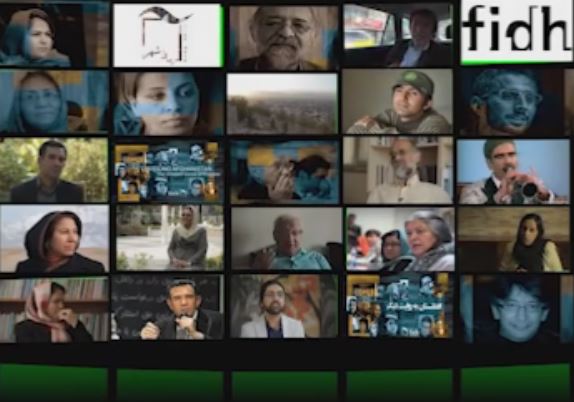
WATCH ALL Interviews here:
https://goo.gl/KLhDCQ
Read 100 Interviews here:
http://goo.gl/gPyBVr


